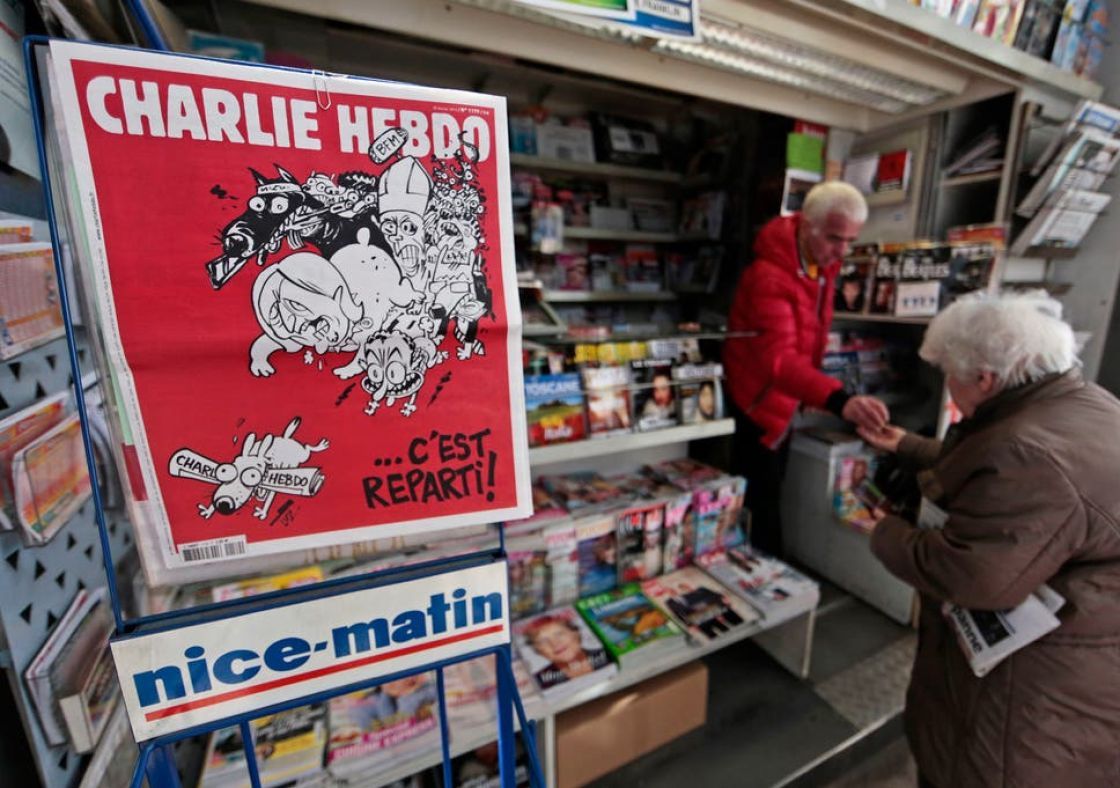- Articles
- Posted
What is Charlie Hebdo and What is its Job?
The French magazine, Charlie Hebdo, is occupying media space that is thousands of times more than it has to contribute, mainly because of the provocative game it is playing.
What appears on its face to be criticism by a satirical weekly magazine, which is described as having a piercing satirical style and is of an “anarchist leftist tendency”, in essence, is a provocation aimed precisely at awakening the extreme right-wing tendencies, even if through unsubstantiated claims that it has a “leftist” inclination.
If the freedom of expression banner is the slogan under which the last battle took place, then the ultimate goal is certainly the suppression of all kinds of freedoms starting from the freedom of expression and all other kinds of freedoms, including political and especially economic, in a scenario that has been repeated since the attacks of September 11, 2001 until today. This begs the question: why?
The continuous rise of mass movements since the beginning of this century and the acceleration associated with capitalism’s current crisis have put financial capital in an unenviable position. In a preemptive attempt to stifle the popular movement by distorting it and diverting its directions, the easiest way is to develop extremist tendencies – nationalistic and religious – against immigrants and refugees, in particular, and hold them responsible for everything that happens. That in essence is a repetition of the circumstances in which Hitler’s fascism arose as well as the process of averting people’s struggles following the Great Depression of 1929 towards fanatical racial trends all the way to World War II.
Nationalistically Fanatic Trends and Islamophobia
The comic and caricature drawings occupied the greatest space of Charlie Hebdo as “a French political satirical weekly magazine”. The magazine’s satire particularly included politics, as well as investigative journalism by publishing reports abroad or in some fields such as sects, religion, the extreme right, political Islam, politics, and culture.
The magazine’s publications are characterized as being highly provocative and attacking the spiritual beliefs of the religious in the context of an absurd stereotyping of the followers of various religions. The magazine first appeared between 1969 and 1981, then ceased publication, and resumed publication in 1992.
Since its inception, the magazine has worked on spreading Islamophobia, in addition to various forms of anti-religious extremism, to create an imaginary battle, whether among religious people of all religions, between religious people on the one hand and non-believers on the other, or, more broadly, between the “religious east” and “infidel west” along the lines of the ISIS mentality that does not differ in essence from Charlie Hebdo’s, nor from Huntington’s method in The Clash of Civilizations, which George Bush the son expressed publicly when he declared a “ new crusade”.
In short, the “freedom of expression” that Charlie Hebdo claims is nothing but the other face of the “freedom to kill” practiced by extremist organizations. Both are two sides of the same coin: the US-originated “creative chaos”, which ultimately aims to propagate chaos in various regions of the world, with the aim of exhausting international opponents. However, now more than ever before, it aims to militarize western societies, in particular, in preparation for more policing and suppressive roles of the Western state apparatus that will confront the escalation of the popular movement with the same conspiracy logic used by third world regimes.
The battles in which Charlie Hebdo plays a pivotal role since 2006, and 2011 to 2012 and 2015 until today, are evidence of the role required of it, which it plays very well and always in a timely manner in conjunction with the work of Islamist organizations such as al-Qaeda and others.



 Dr. Aroub Almasri
Dr. Aroub Almasri